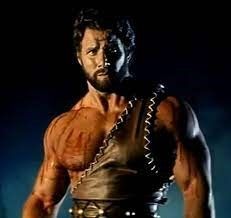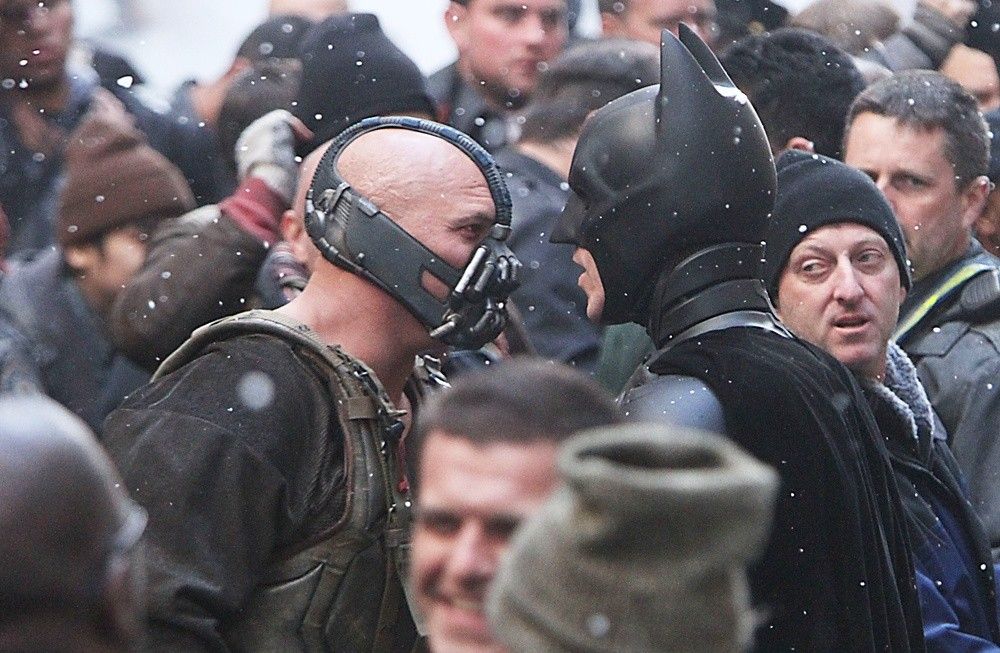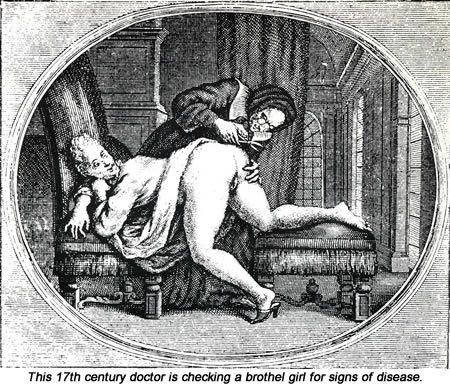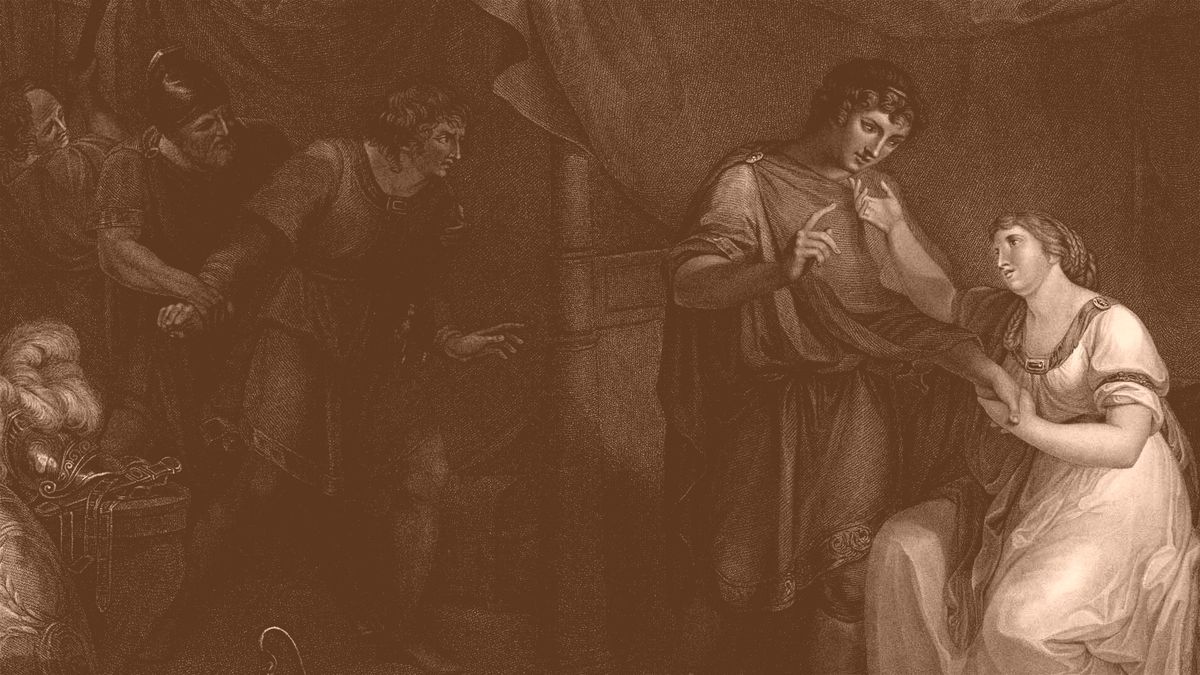The gist
Troilus, a prince of Troy during the 7th year of the 10 year Trojan war, is madly in love with Cressida. Pandarus, his older lecherous and likely syphilitic (more on that later), friend and Cressida's uncle, arranges for the two to meet.
The two exchange vows of love and fidelity. Unfortunately Cressida's father agrees to exchange Cressida to the Greek army in exchange for prisoners of war.
Troilus seeks to rescue Cressida from the Greek army, but Cressida, who realistically realizes what will happen to her as a prisoner of war, attaches herself and declares her love and fidelity to Diomedes, one of the strongest and most powerful soldiers in the Greek army. When Troilus discovers Cressida's new commitment to another man Troilus goes mad with grief.
The play is called Troilus and Cressida but honestly it is barely about this couple. It is far more focused on showing the contrast between the Greeks and Trojans and how they conduct themselves. Shakespeare spends 3 of the 5 acts showing the Trojans as mostly honorable men who, even when they admit doing wrong, as Paris does admit he was in the wrong to kidnap Helen, even then Paris attempts to argue that giving her back would be less honorable than fighting to keep her. Meanwhile the Greeks are politicians, backstabbers and petty gossips.
Trailers
I am not sure how I feel about these trailers that the Royal Shakespeare company is making. I like the Mad Max motif as a concept does this play really need this kind of "popularizing" in order to get attention? Are people unwilling to watch a play unless it gets a "Game of Thrones/Witcher" make over?
In contrast I like this simple, non-CGI filled trailer's also made by the Royal Shakespeare Company. It doesn't tell you anything about the plot but it shows something of the acting and the emotional intensity of the play.
Impressions
I struggled to read this play at first because I had a large bias against the whole concept of the Greeks being the bad guys.
The first time I was captivated by a book was when I was in second grade. The book was D'aulaires Greek myths. The stories of the Greek gods astounded me. I loved the pantheon of Greek gods but I particularly loved the stories of the greek heroes. I'm having a great time re-reading this book with my son even though he doesn't seem to be getting the same kind of feeling of enchantment.
That book put me on a path that affected so much of my love of reading and movies. I watched all the classic movies of Jason and the Argonauts and the Hercules movies from the 60s.

From there I read the book of Norse myths. That got me into reading Marvel Comic's "The Mighty Thor". From there I read various iterations of the Iliad and Odyssey.
Of all the stories it was always Odysseus that struck me as the most important and best of what the Greek myths had to offer. I didn't know why I loved him as a kid but I think what made him so appealing was that he was the only man who was almost universally respected by the Gods who were so much above him.
Odysseus was what was known in Greek as "Sophrosyne". He was a man who excelled physically, was of sound mind and judgement and of excellent moral character. Odysseus was the Greek pinnacle of what a mortal man could be. He wasn't as strong as Hercules or as powerful a warrior as Achilles but Hercules and Achilles were demi-gods and were capable of achieving things that were not possible for anyone born of two human parents.
Odysseus was the Batman of ancient Greece; the man who has realized, through his willpower and determination, the pinnacle of his physical and mental potential. This achievement, given its rarity, earned him even the respect of the Gods!
So any play or story that had a negative spin on my single favorite character in all of literature was not likely to earn my favor. To read a story in which my hero was not only a petty politician but a vacuous speaker who took two pages to get a thought that took one or two sentences to convey was beyond my ability to accept.
I remember reading, or to be more honest, skimming, this play in my college Shakespeare class (Sorry Professor Herzman) and just hating it because of this gross slander of my hero.
Reading this in my 40s hasn't really changed my animus but it did get me curious about why Shakespeare would choose to interpret this character and the Greeks so negatively
Troy and England
England, being a Roman colony, has a close tie in its heart to the Roman tradition. As the history of Rome is tied to the fall of Troy by virtue of its founding by Aneas, one of the only royal Trojan survivors of the Iliad, there is a greater love for the Trojan side than there was for the Greek side.
According to Isaac Asimov, in his book, the history of Shakespeare, the Iliad was not fully translated into English in the time of Shakespeare. So the history of the fall of Troy was much more informed by Virgil's Aneid, telling the story from the perspective of the Trojans than from the Greek side.
Victorian Fan-Fic
It was apparently fairly common to write stories about many of the characters briefly mentioned in the Iliad. There were stories about characters who were simply named and didn't even speak. Whole sagas were written in the Victorian era about these characters who were background characters.

So in some ways all of the stories that people write today continuing the adventures of Harry Potter, or having him meet Spock and Dr. Who, are carrying on this tradition that Shakespeare was partaking.
Something about this idea made the play click for me and become more appealing. I was able to think of it as a kind of propaganda piece; one that could be enjoyable on its own merits if I focused on the play and the language.
And man - is the language good in this play!
My favorite curses and insults
Ajax: "Thou bitchwolf's son, canst thou not hear?"
Ajax: I will beat thee into handsomeness (I am absolutely stealing this line)
Ajax: You whoreson cur!
Thersites: All the argument is a whore and a cuckold.
Thersites: I will hold my peace when Achilles' brach bids me, shall I?
("brach" apparently being an term for "bitch" - Thersites is literally calling Patroclus out as being nothing but a sex toy for Achilles).
I have a bunch of friends who served in the military and the one thing that they all have in common is that they have filthy mouths and they will smack talk each other with no mercy. So Shakespeare really nailed the kind of talk that you would find in a military setting. No point in walking on eggshells with people if there is a good chance that you are going to die.
Favorite language
Besides the cursing I really appreciated this speech by Cressida
Pandarus:
You are such a woman a man knows not at what ward you lie
Cressida:
Upon my back to defend my belly, upon my wit to defend my wiles, upon my secrecy to defend my beauty and you to defend all these: And at all these wards I lie, at a thousand watches. If I cannot ward what I would not have hit, I can watch you for telling how I took the blow.
I think there is something very honest here. Cressida is saying that she has to rely on her wits, wiles, beauty and her ability to deceive and garner sympathy from men who would protect her. She needs all of these things because she recognizes the brutal reality that she cannot defend herself using the same weapons that a man uses; she cannot outfight a man or beat him to a pulp so she has to harness the other weapons that she has.
I appreciate her honesty; she is the only one who speaks any truth in this play. Which is why, out of all the characters in this play, I think she is the only one I slightly connected with.
war is hell
As always there is a deeper human truth to the plays. The thread that I interpreted in this one was one surrounding the difference between the false face of war and the ugly reality.
The false face of war is one that portrays war as a noble enterprise. The romantic image of the brave knights and heroes who fight for justice and honor is juxtaposed with the petty squabbling of who gets the shares of the spoils of war in terms of slaves and property.
I guess Shakespeare is trying to tell me that while I might lionize Odysseus as the pinnacle of what a man can achieve the reality is the enterprise of war is dirty; full of ethically, and sexually, suspect players.
I think there is some truth to this argument; part of the reason people suggest to never meet your heroes is because they are human and will inevitably fall short of your expectations.
The rest of the play is spent discussing the challenges of venereal diseases in a war camp.
The French Disease

Syphilis is the "hidden" star of this play.
It seems to be constantly implied by various characters in the play. It is overtly discussed by Thersites and Pandrus. Pandrus ends the play by explicitly talking about his aching bones
"Till then I'll sweat and seek about for eases,
And at that time bequeathe you my diseases."
My interpretation of this is that Pandrus is basically saying to the audiences, "get caught up in this business and it's just a matter of time before you get infected too".
This is an interesting angle to what is supposed to be, on the surface at least, a tragic love story.
Coming back to the story of ostensibly the main characters this makes me think about Cressida being given to the Greeks. Cressida understood the dangers of being a prisoner of war and seemed to comprehend that she would suffer a terrible fate unless she hitched her wagon onto one man in the Greek camp who could protect her.
It was rumored that Shakespeare himself suffered from Syphilis. I don't know whether that is true or not. If it is true I can see how that would completely inform his mindset in writing this play.
Conclusion
Overall I enjoyed reading this play more than I thought I would given that I had such a negative feeling about it for the past 20 something years.
This is a tough play to produce - lots of characters and not really anyone to root for. I suspect that is why there haven't been too many popular adaptations made. I think the BBC made one film back in the 1980s but I haven't seen it. I watched one YouTube play, the only full play that seemed to be available.
I think this might be the first time that I enjoyed reading the play more than watching the play. Part of that might be the fact that this rendition of the play seemed to be performed near an airport because the jet sounds were loud and frequent.
There is a modern interpretation that I just saw that was incredibly well done. It was a ten minute adaptation of the play but it was incredibly well shot and acted. I was particularly captivated by the actress who played Cressida - she did a fantastic job of capturing the spirit of Cressida in the sense of being a woman who wanted a man but who realized that giving a man what he wants will make him lose interest... that push and pull between her own desire and recognizing male inconsistency was really well done in this brief performance. It also gives just the slightest hint of the STD angle of the play, which is impressive for a ten minute version of a play!
I wouldn't recommend anyone read this play unless you were doing a Shakespeare challenge - but this version is definitely worth watching to capture the best part of the play.
This play has been categorized as a "problem play". The problem plays are characterized by ambiguous tone and complexity of plots. This is definitely a problem play in that sense. All in all I enjoyed reading it but I can't really recommend it to anyone but the most die hard Shakespeare fans.


Member discussion: